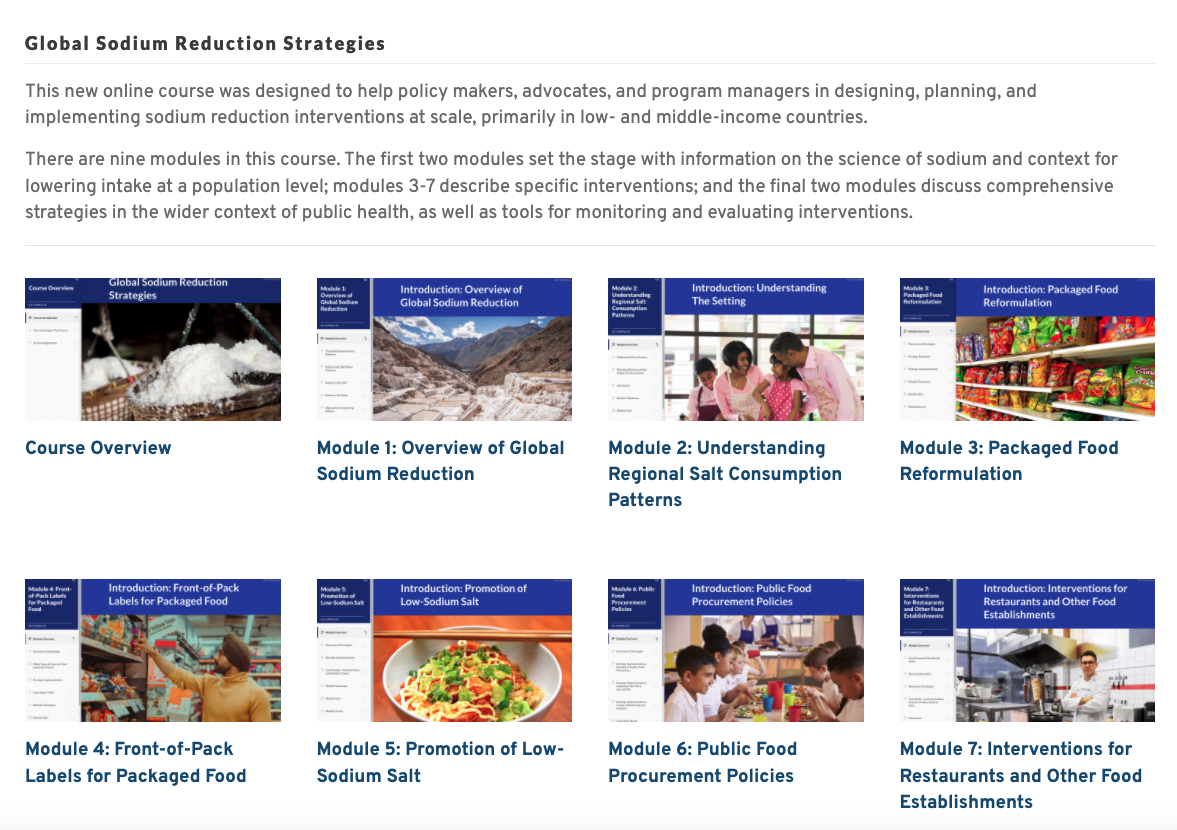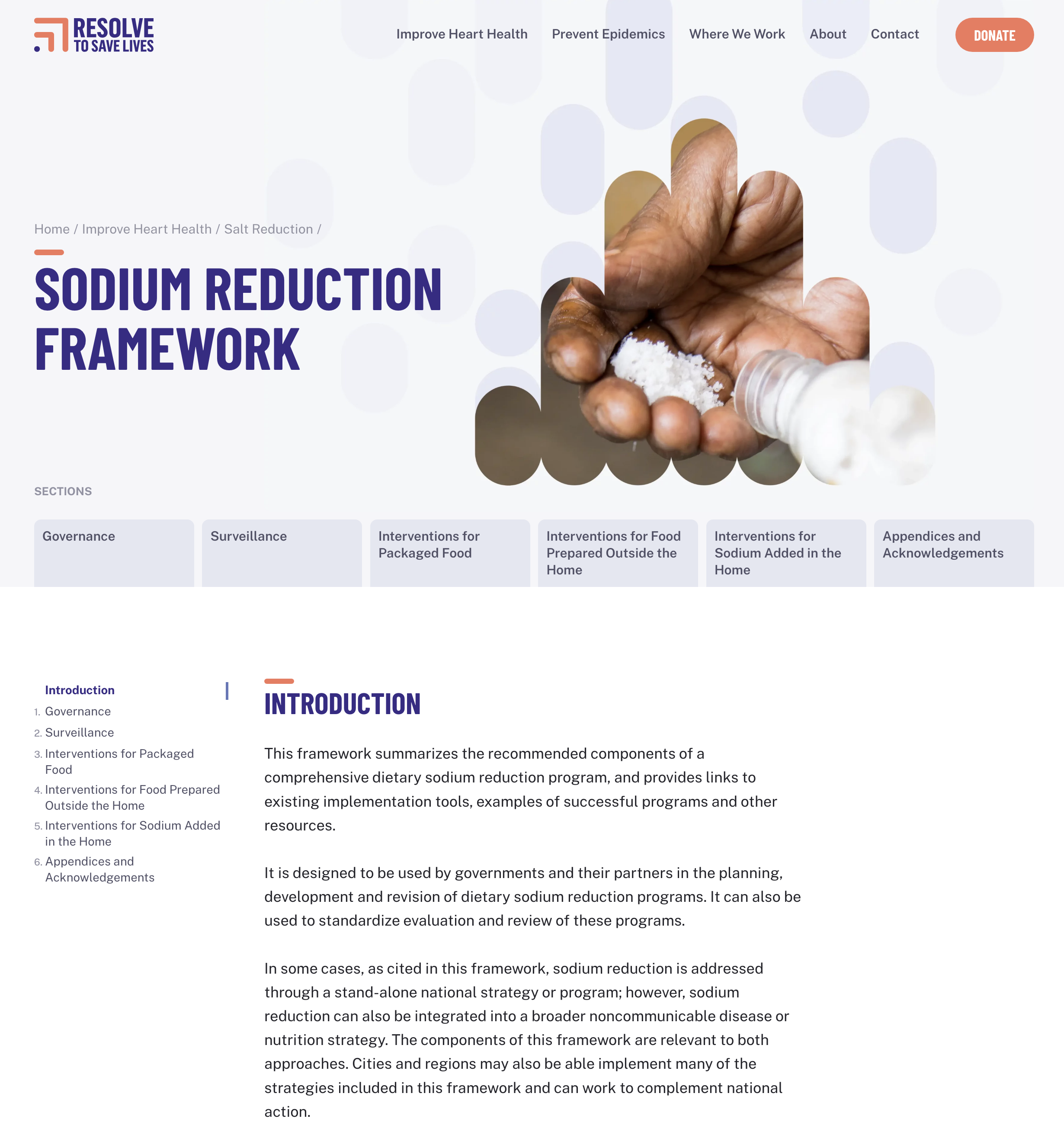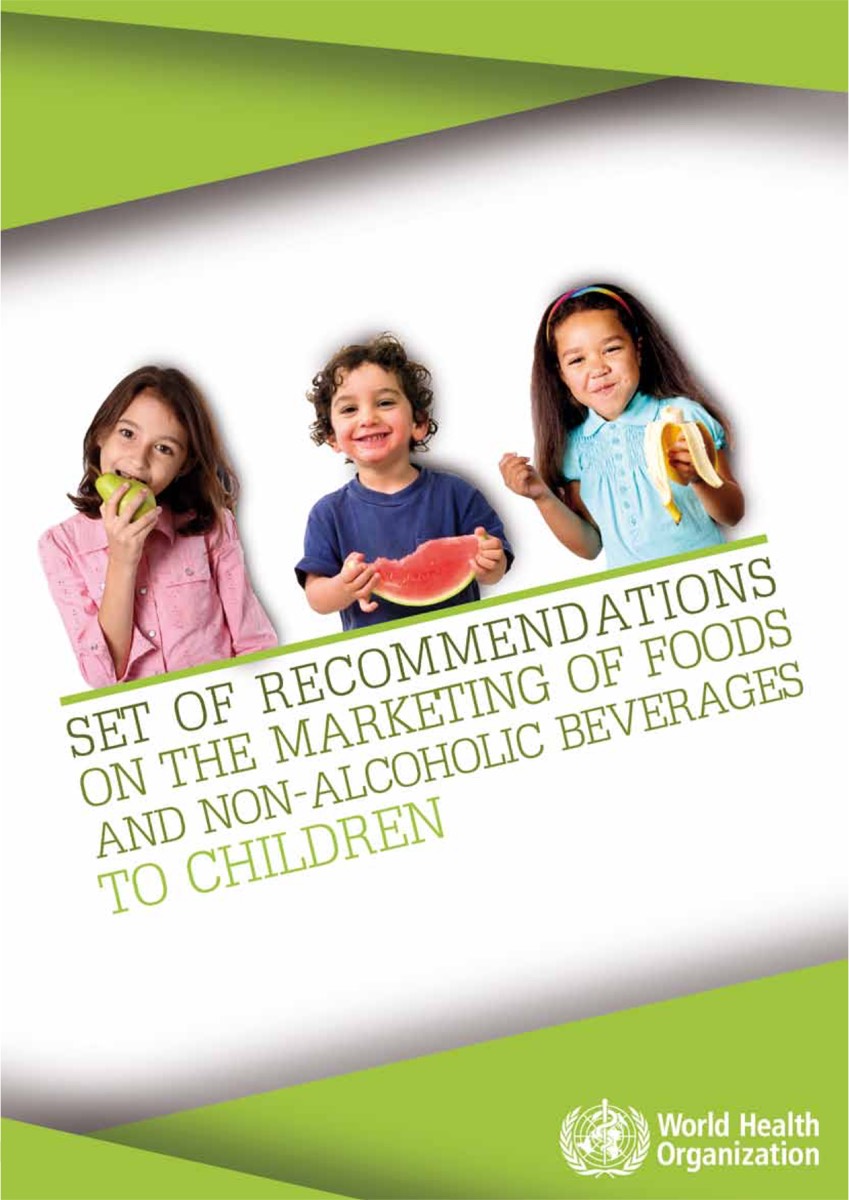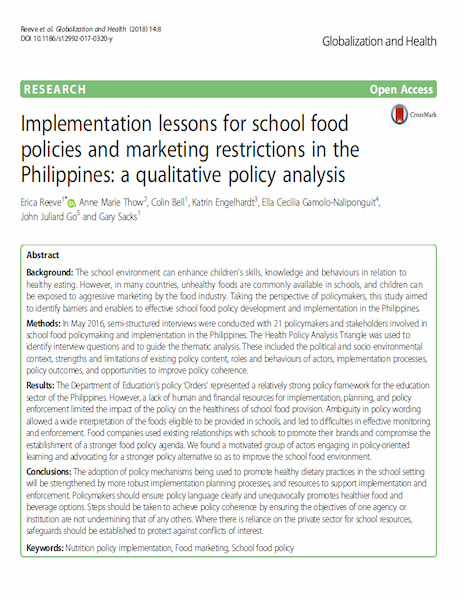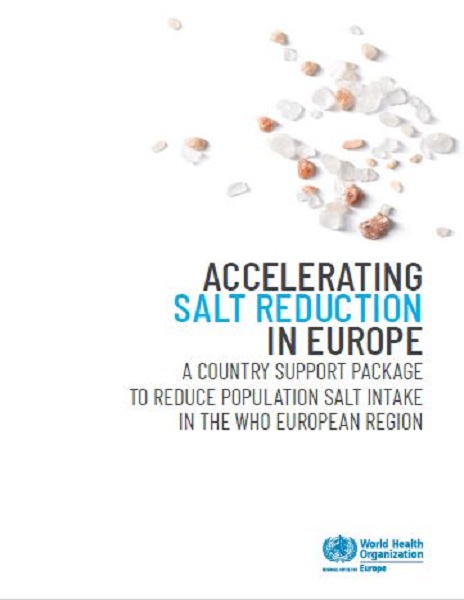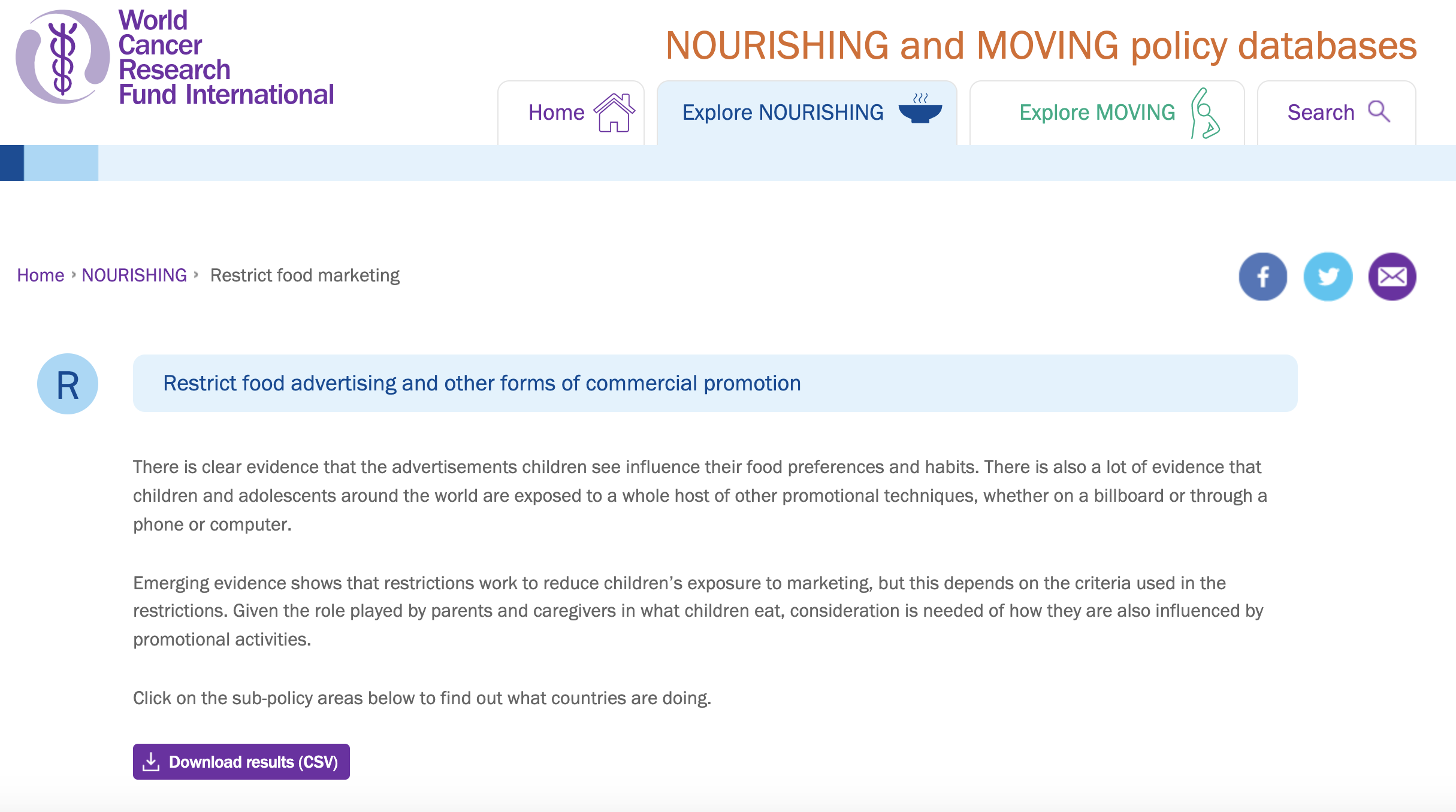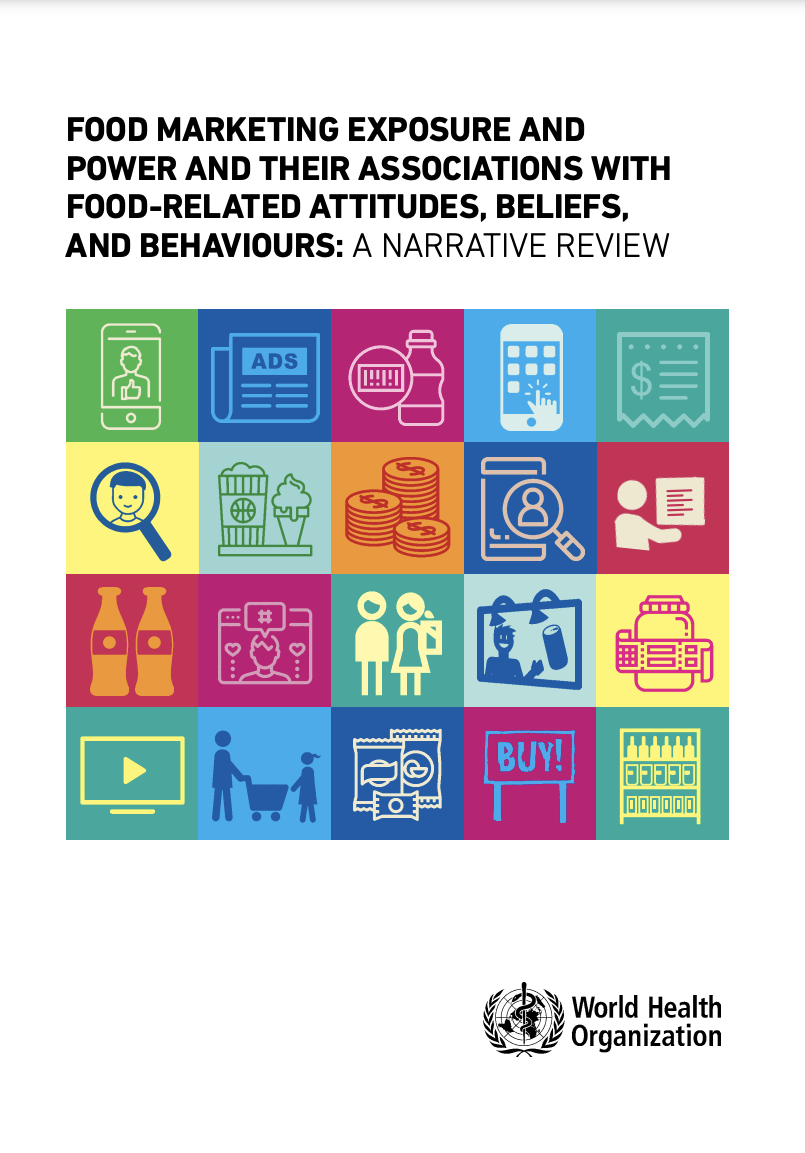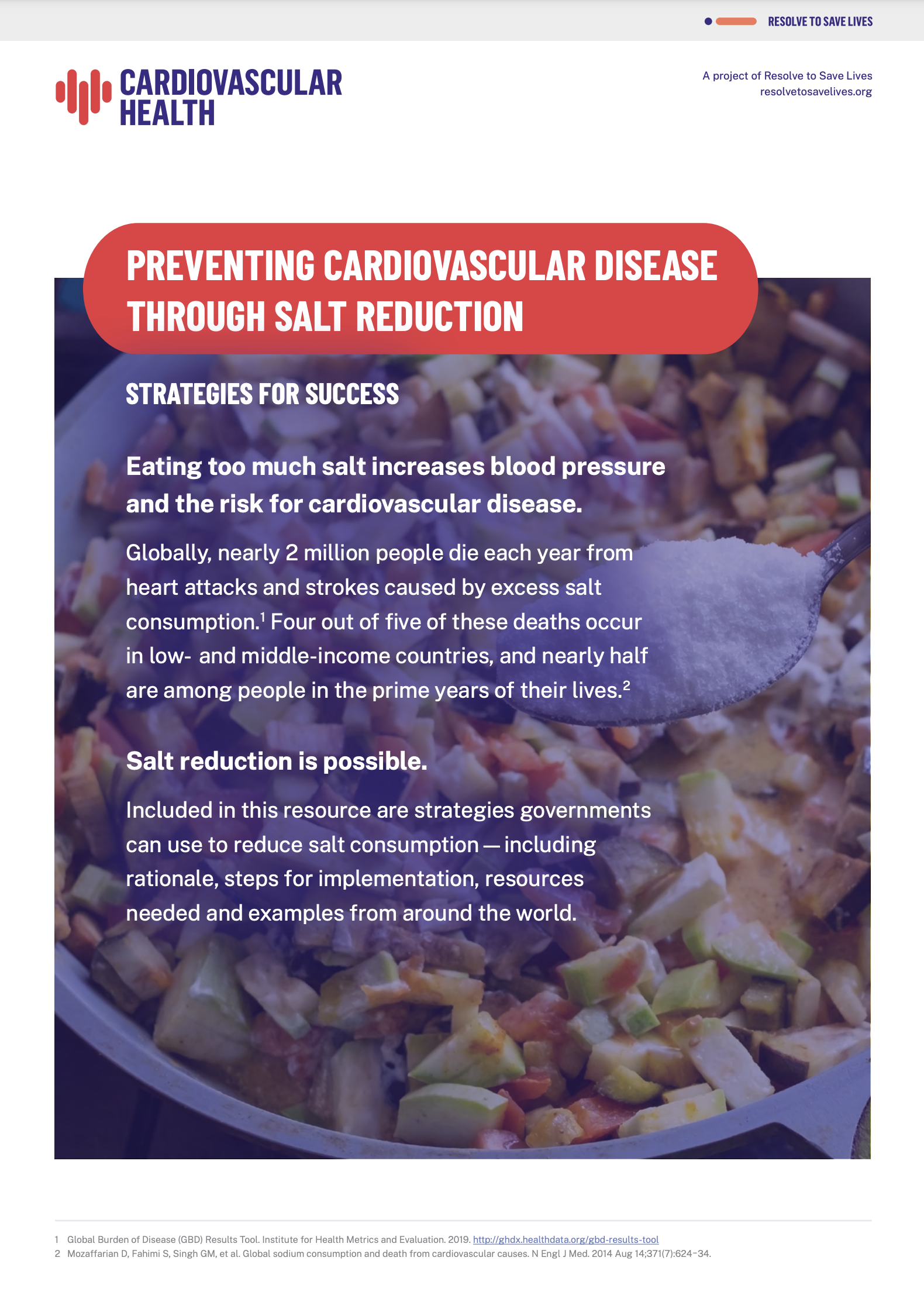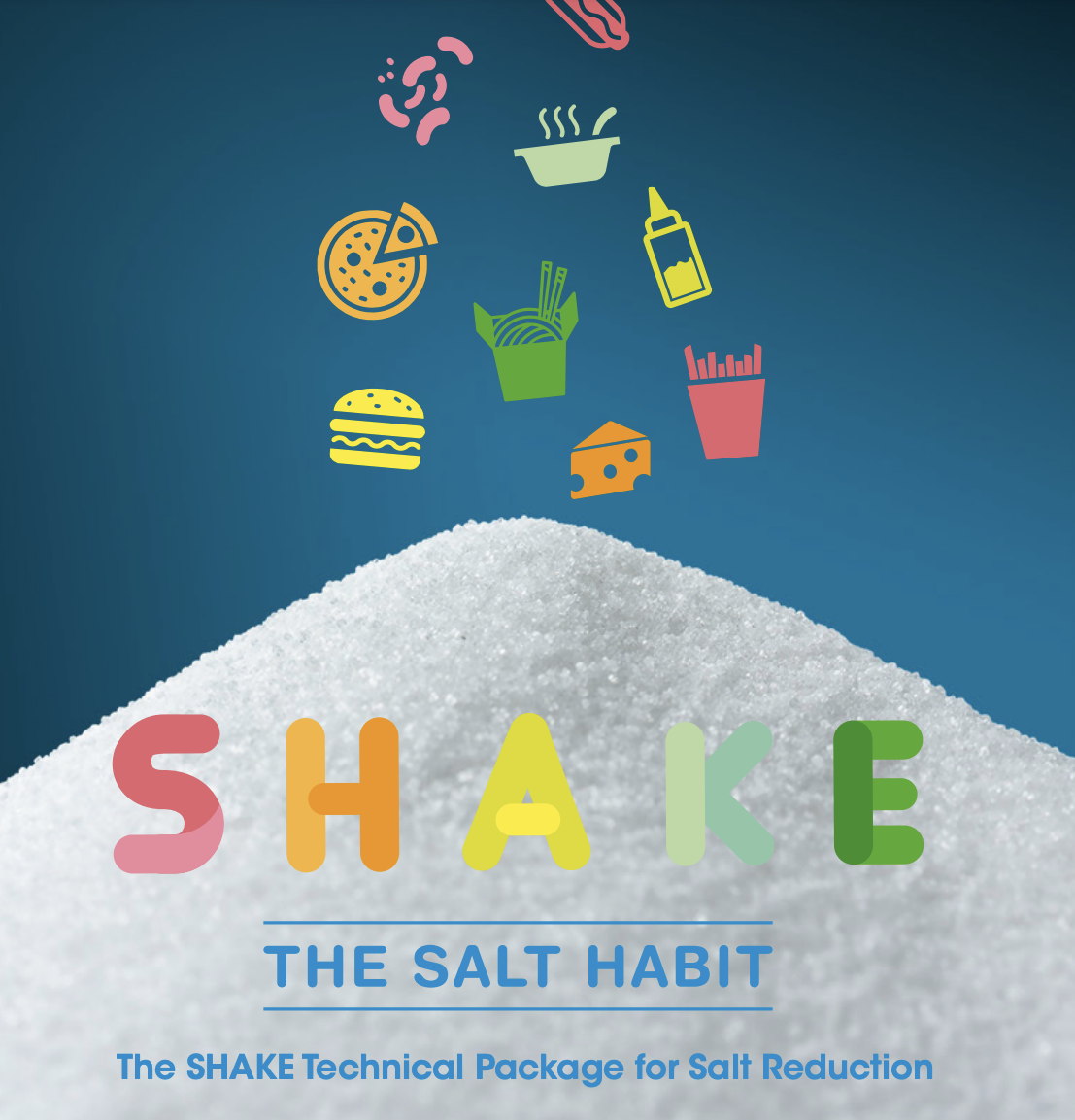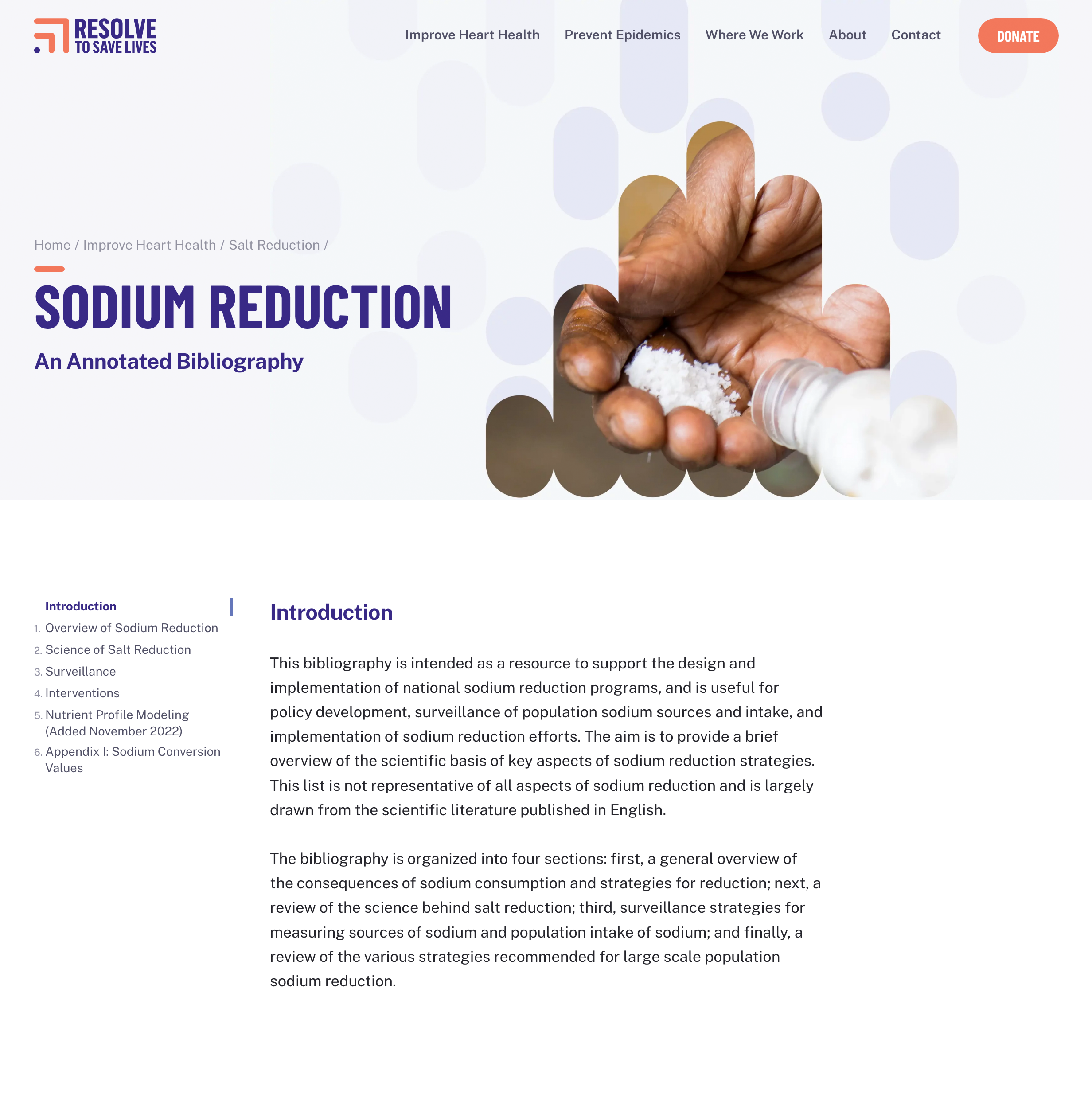Resource Library
Marketing restrictions
Global Health Advocacy Incubator
Johns Hopkins School of Public Health
Designing, planning, and implementing sodium reduction interventions in low- and middle-income countries
World Health Organization
Resolve to Save Lives
World Health Organization
Reeve E et al. Glob Health. 2018.
World Health Organization
World Cancer Research Fund International
Resolve to Save Lives
RTSL’s best interventions for saving lives with sodium reduction.
World Health Organization
Resolve to Save Lives
World Health Organization
World Health Organization

